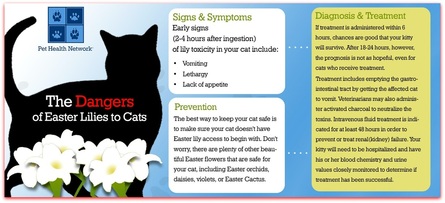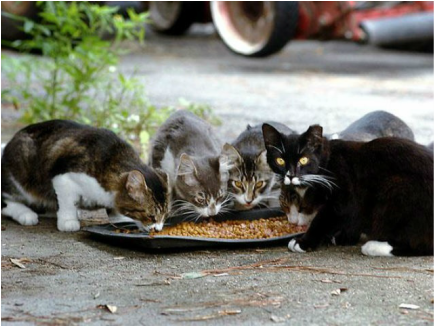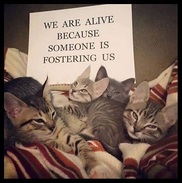 March 20-26, 2016, is National Poison Prevention Week. And here at Furever Home, we want to help you keep your cats, dogs, rabbits and all other pets safe. First and foremost, always have your vet’s phone number handy. There is also a national hotline you can call: 855.764.7661. You can learn more on their website www.petpoisonhelpline.com. This site also includes a very detailed list of items that may be harmful to your pets, such as some common household items:
If your pet accidentally ingested something harmful, it could take twenty minutes up to a few days for them to begin showing a sign. And, as the weather gets warmer and people begin spring cleaning and opening windows and spending time outside, the danger increases. How to Keep Your Pets Safe
What to Do if Your Pet is Accidentally Poisoned
What Not to Do
Questions? Let us know in the comments section.
2 Comments
 Kitten season is my favorite time of year. Furever Home typically helps 75 new kittens find their loving furever homes and, while most of the kittens are being cared for by our generous foster families (and a big thank you to them – we couldn’t do it without your support!), many kittens aren’t as lucky. Lancaster County’s feral cat population was up 60% last year, with estimates showing that there could be 84,000 feral cats in the county. It is a big issue. Here are some guidelines on how you can help. The difference between stray and feral cats While stray and feral cats share some commonalities there is a big difference. Stray cats are socialized to humans – in most cases they were once pets who have either become lost or were, unfortunately, abandoned, while feral cats have had very limited (or no) interactions with humans and have reverted to a wild state. Stray cats may become feral as their contact with humans dwindles or, in a happier scenario, become loving pets again if they are taken in. Feral cats typically fear humans. In most cases, unless they are very young at the time of adoption, they do not enjoy living indoors if someone were to take them in. They do, however, bond with their colony. Although you might wish to rehabilitate a feral cat, if they are not socialized by about 5 month of age, it is almost impossible to turn them around. They are best left to live their lives outside. How to tell the difference – a few signs
One of the most important things for you to remember is that feral is a designation of behavior, not location. Should I approach a cat if I see one outside? If you are thinking about approaching an unknown cat you find outside, be cautious. Cat bites and scratches can be harmful. Follow the lead of the cat and if it is friendly to you, take your time and get to know it to build up trust. Stray cats may tolerate touching while feral cats will not – not even by a caretaker who feeds it. As you get to know a stray it will relax over time while a feral cat will remain tense. If they feel threatened, a stray will hiss while a feral cat could lash out aggressively. As stated above, feral cats tend to live in colonies and, together, they will defend their territory. They typically live where they can find food and shelter – such as an abandoned building near a restaurant dumpster or under the porch of someone who feeds them even though there is no other interaction. So how can I help? With a stray, begin by leaving food out for it at the same time each day. As it comes around more, slowly get to know it until the trust is there and you can pet it. If you’re thinking about taking it into your home, be sure to take it to a vet first for shots, neutering, flea treatment and a health checkup – especially if you have other pets. A trip to the groomer will probably also be in order. Whether or not you take the cat in, the first thing you should do is to have the animal scanned for a microchip. Many animals are given away or sent to shelters while their owners are frantically looking for them. Call the local vets and give a description of the animal, take a picture and make a flyer and post it in local vet offices, supermarkets and public places. Ask around the neighborhood. Facebook is an excellent way to advertise a found animal. Craigslist has a very active lost and found pet section in Lancaster. FIND TOBY in PA, lancaster county pa lost found & rehoming cats and Lost Pets of PA are excellent Facebook resources dedicated to posting lost and found animals. If you are unsuccessful finding an owner, you may want to attempt to contact a no-kill shelter to see if they are taking in animals. Be aware that most rescues are very overwhelmed over kitten season and cannot accept the high number of requests that they get to take in animals. Furever Home gets about 30 calls and email per week from people asking them to take in cats. Feral cats, on the other hand, should not be approached. If you have feral cats in your neighborhood, the responsible thing to do is to contact a local feral clinic such as Pet Pantry of Lancaster County and ask to rent a "have-a-heart" trap, which humanely traps the cats. This is a complicated process because you must trap the animal the night before the surgery and take away its food. Call first and Pet Pantry will give you instructions on what is involved in trapping and having an animal spayed/neutered. It’s important to note that you must call the clinic for an appointment before trapping the cat as you can’t leave the cat in the trap longer than 12-18 hours. After surgery, it is a wonderful help if you provide shelters for the feral cats. For great suggestions, see the website of Alley Cat Allies for ideas on how to build outdoor shelters. Furever Home is also happy to assist you to build an outdoor shelter. The final step is providing regular food and water for your outdoor friends. Furever Home has five colonies of feral cats that we feed, helping over 100 cats. And we greatly appreciate any dry cat food donations to help us with this cause. To see our full wish list, click here. To donate and help us with this county-wide issue, please visit http://www.fureverhomeadoptioncenter.com/donate.html. Questions? Let us know in the comments section.  Kitten season is almost upon us and Furever Home currently has several openings for families who are willing and able to open their homes to these adorable little furballs until they are old enough to find their furever homes. Fostering is a crucial part of the animal rescue world – we couldn’t do what we do without our foster families. What it means to foster a kitten. Fostering isn’t right for everyone but it is an extremely rewarding experience. Foster parents nurture the kittens and teach them what it is like to be loved and cared for. By providing a safe environment for them to explore you help them learn to trust people. Foster kittens are generally friendlier and are, therefore, adopted more quickly. You will have a lot of fun living with a kitten and we will provide support throughout the duration. First and foremost, all expenses will be paid for by Furever Home. Our volunteer vets provide the care the kittens need, including vaccines, medicines and additional medical care if needed. We will work with you to arrange the right schedule that works for both you, the vet and, of course, the kittens. We also provide food and other supplies. You have all of the love and fun of having a kitten without the expense. We will also provide training before you take the kitten home and are available to answer questions along the way. Our goal is aligned with yours – to provide the best possible experience so the kittens grow into healthy, loving and adoptable cats. FAQs There are a number of general questions we are frequently asked about fostering and we wanted to answer some of them here. We are happy to answer all other questions you have. You can either respond to this post or email us at [email protected]. Can I foster more than one kitten at a time? Yes! We try to keep siblings together whenever possible so we are typically looking for homes that can accommodate more than one kitten. How old are the kittens when they are available for fostering? Kittens are anywhere from 4-5 weeks on up to 8-10 weeks old. On occasion, we will have nursing (or pregnant) moms with newborns kittens. Can I just stop in to play with the kittens and take one home to foster if I like it? No. Being a foster family is serious business. We have an application online that you need to fill out. We also meet with all families to review the guidelines. Also, due to the set-up of our facility, we do not allow visitors to come in just to play with the kittens or cats. Can I foster a kitten even if I have other pets? It depends. In most cases it is okay but the kittens have to be kept in a separate, secure location that is kitten-proof. Any time animals are together, whether they simply pass each other in the vet’s waiting room or if they live together, there are risks of fighting, injury or shared illness. Keeping the foster kittens in an area by themselves mitigate this risk. Can I name my foster kitten? You may call your fosters whatever you wish while they are in your home but we have a sponsorship program available that gives sponsors the ability to name kittens as they come into our adoption center. You can learn more about the program here. What if my kitten needs medical attention? We have vets who will attend to all of the care the kittens need, from simple vaccines to emergency illnesses. We will train you in the proper care of the kittens, and a foster coordinator is available as needed. Is fostering tax deductible? Yes. We will provide food and supplies but if you make additional purchases they are considered gifts to the shelter and are, therefore, tax deductible. Are the kittens house broken? Maybe. Cats and kittens, by nature, will use a litter box. However, a huge part of fostering a kitten is training and socialization. That’s why we need dedicated families who are willing to not only play and cuddle with the kittens but who are also willing to spend the time they need to learn good behaviors. What if I fall in love with the kitten? Do I have to give him up? Not necessarily. Many foster families go on to adopt their kittens while others go on to foster other cats in need. It depends on your circumstance. If you do decide to adopt, you will need to follow the adoption application process. I’m ready to learn more. Now what? Download our application below, and set up a time to come in to talk to us about this opportunity. You’ll not only be saving the life of a kitten, but you’ll be ensuring that our center has space available for another cat in need. And you could be meeting your new best friend who will bring a lot of laughter and adventure to your life. Questions? Let us know in the comments section. |
Archives
October 2023
Categories |
Donate Here |
Contact Us717-560-6400 |
